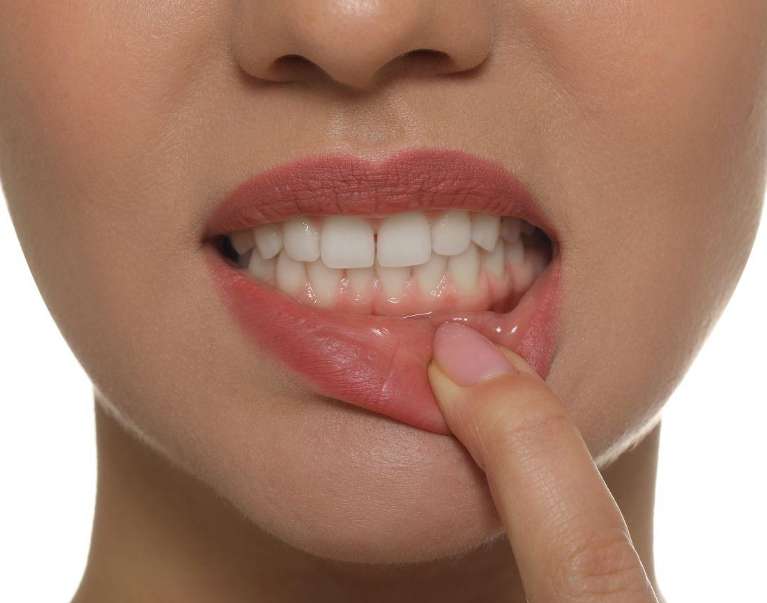
When you think about going to the dentist, you probably think they’ll focus primarily on your teeth, right? Well, that’s only part of your oral health picture; in fact, healthy gums are just as important as healthy teeth.
Millions of Americans suffer from gum disease, and without proper treatment, it can lead to numerous dental issues, including tooth loss.
So, if you’re concerned about gum disease, we offer timely care for a healthy smile in Milwaukee and beyond.
Let’s take a look at what you need to know about gum disease and how you can protect your smile for a lifetime.
Understanding Gum Disease: From Gingivitis to Periodontitis
Gum disease, or periodontal disease, occurs when your gum tissue becomes infected. The earliest form of gum disease is known as gingivitis. As it progresses, it can turn into periodontitis, where the infection spreads below the gumline and can damage the bones and tissues that support your teeth.
When left untreated, periodontitis leads to severe gum recession, deep spaces between your gums and teeth, loose teeth, and tooth loss.
Usually caused by plaque buildup, the early warning signs include:
- Red and swollen gums
- Bleeding gums
- Tender gums
- Receding gums
- Persistent bad breath
- Loose teeth
The Importance of Immediate Care for Your Oral Health
Gum disease often happens slowly and is easily ignored, but it’s essential to get the care you need as soon as possible. Untreated periodontal disease can lead to dental issues and affect your overall health as well.
According to the Mayo Clinic, there could be a direct link between gum disease and the following health concerns:
- Endocarditis: This infection of the inner lining of the heart occurs when germs from another part of your body enter your bloodstream. If you have gum disease, the germs in your mouth could be the culprit.
- Cardiovascular disease: The inflammation caused by gum disease may be linked to clogged arteries, stroke, and heart disease.
- Pregnancy complications: Both low birth weight and premature birth have been linked to periodontal disease.
- Diabetes: Some research suggests that gum disease makes it more difficult to control blood sugar levels.
- Certain cancers: Numerous cancers have been linked to gum disease, including lung cancer, prostate cancer, and breast cancer.
Your West Allis dental office is your local solution for periodontal care. We offer gum disease treatment options to restore your oral and overall health.
Taking the Next Step: What to Expect at Your Visit
If you suspect you might have gum disease, we’ll have you schedule a periodontal appointment so we can accurately diagnose the issue and customize a treatment plan for you.
The steps of this process include the following:
- Thorough examination: We’ll begin by reviewing your medical and dental history and examining your teeth, gums, and surrounding bone structure, helping us determine whether you have gum disease. We’ll also take x-rays to assess your bone levels.
- Personalized treatment plan: Based on our findings, we’ll develop a treatment plan to combat your gum disease. We’ll discuss the plan with you and answer any questions you may have about procedures, recovery, and costs.
- Treatment: We’ll treat your gum disease and work to restore your oral health. This treatment may include scaling and root planing, known as a deep cleaning, as well as other treatment options.
- Follow-up: During your regular visits, we’ll monitor your gum health and provide additional treatment as necessary. You may need a professional cleaning every few months, and we’ll work with you on your dental hygiene habits at home.
Prevention Is Key: Maintaining a Healthy Smile
Our dental team understands that prevention is the best way to avoid periodontal disease; that’s why we encourage our patients to practice daily hygiene habits for stronger gums.
Here’s what you can do to prevent gum disease:
- Brush your teeth in the morning and at night for two minutes. Use a soft-bristled toothbrush and fluoride toothpaste.
- Floss between each tooth every day to remove harmful plaque and tartar.
- Rinse your mouth with an antibacterial mouthwash every day in the morning and at night.
- Visit your West Allis dentist every six months for routine checkups and cleanings.
- Limit your sugar intake to avoid plaque formation. Try to replace sugary drinks with water.
- Avoid smoking or smokeless tobacco products because they increase your risk of gum disease.
- Eat a balanced diet with ample vitamins and nutrients; focus on healthy fruits and vegetables.
- Drink plenty of water to stay hydrated, increase saliva production, and wash away bacteria.
Looking for Gum Disease Treatment in West Allis, WI?
If you live in West Allis or the surrounding area, we’d love to welcome you to our comfortable dental office! Our dental team works hard to ensure you get the quality care you deserve; we’ll do whatever we can to help you maintain the healthiest teeth and gums possible.
When you’re ready to experience dental care with a difference, please reach out to us at (414) 667-0911 to schedule a consultation or appointment.
We look forward to hearing from you!
